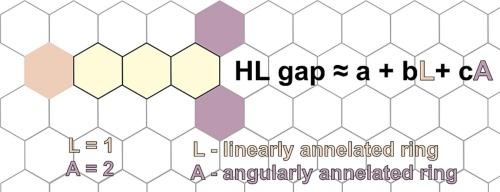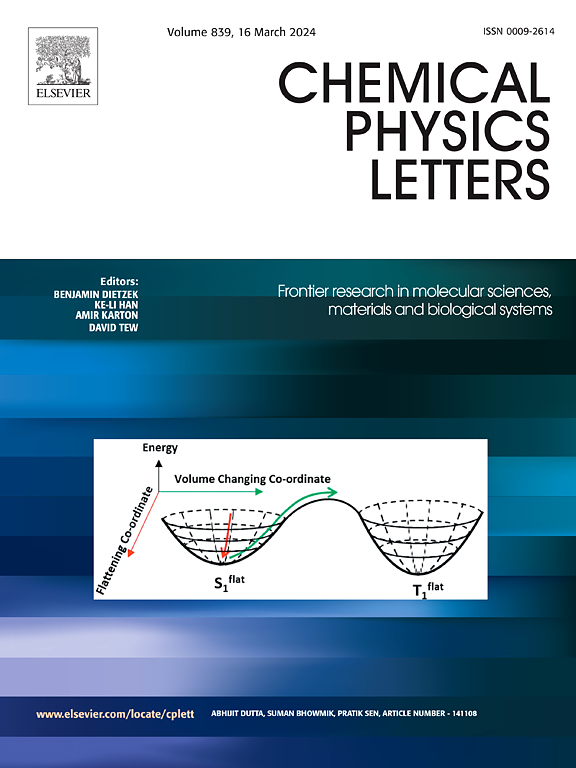Tuning the HOMO-LUMO gap of polycyclic conjugated molecules using benzo-annelation strategy
IF 2.8
3区 化学
Q3 CHEMISTRY, PHYSICAL
引用次数: 0
Abstract
The effect of benzo-annelations on the HOMO-LUMO energy gaps was examined in a series of benzo-derivatives of anthracene and acridine. It was shown that angular benzo-annelation increases the HOMO-LUMO gap value, while linear benzo-annelation decreases it compared to the non-annelated parent molecules. A simple quantitative model was developed being able to accurately predict the HOMO-LUMO gap values using only the numbers of angularly and linearly annelated benzene rings.

利用苯并沟道化策略调节多环共轭分子的 HOMO-LUMO 间隙
在一系列蒽和吖啶的苯并衍生物中研究了苯并沟道化对 HOMO-LUMO 能隙的影响。结果表明,与未沟道化的母体分子相比,角度苯沟道化会增加 HOMO-LUMO 能隙值,而线性苯沟道化会减小 HOMO-LUMO 能隙值。研究人员建立了一个简单的定量模型,只需利用角环化和线性环化苯环的数量,就能准确预测 HOMO-LUMO 间隙值。
本文章由计算机程序翻译,如有差异,请以英文原文为准。
求助全文
约1分钟内获得全文
求助全文
来源期刊

Chemical Physics Letters
化学-物理:原子、分子和化学物理
CiteScore
5.70
自引率
3.60%
发文量
798
审稿时长
33 days
期刊介绍:
Chemical Physics Letters has an open access mirror journal, Chemical Physics Letters: X, sharing the same aims and scope, editorial team, submission system and rigorous peer review.
Chemical Physics Letters publishes brief reports on molecules, interfaces, condensed phases, nanomaterials and nanostructures, polymers, biomolecular systems, and energy conversion and storage.
Criteria for publication are quality, urgency and impact. Further, experimental results reported in the journal have direct relevance for theory, and theoretical developments or non-routine computations relate directly to experiment. Manuscripts must satisfy these criteria and should not be minor extensions of previous work.
 求助内容:
求助内容: 应助结果提醒方式:
应助结果提醒方式:


